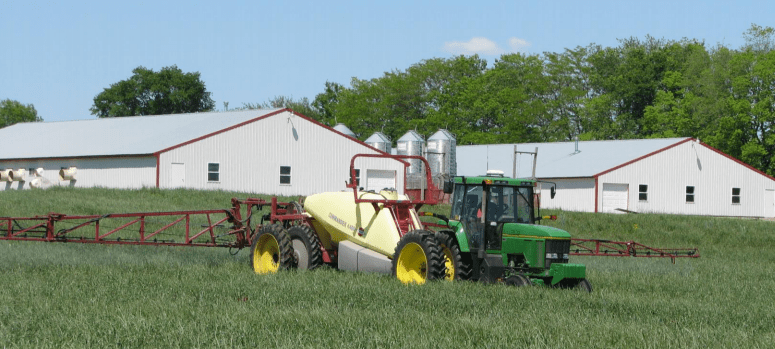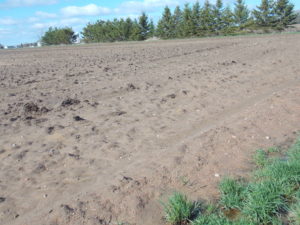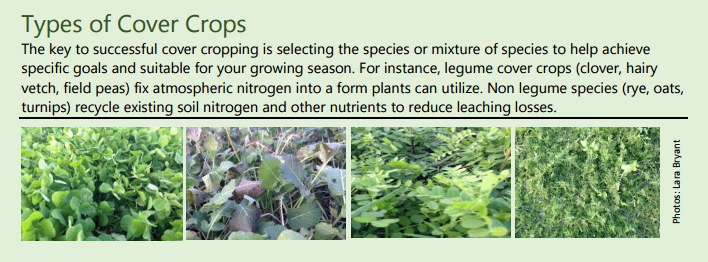We have much more to do and your continued support is needed now more than ever.
Sustainable Farming
This Week in NWF History

Since 1936, the National Wildlife Federation has worked to conserve the nation’s wildlife and wild places. As part of our 80th anniversary celebration, we are recognizing important moments in our history that continue to make an impact today.
The National Wildlife Federation works both in policy and practice to strengthen the Farm Bill, and provide on the ground support to farmers by giving them the tools and knowledge necessary to help them remain profitable and environmentally sustainable.
Farm Bill
The first Farm Bill was created in May 1933 with two key goals in mind: to provide support to farmers suffering from low crop prices and to address the massive environmental impacts of farming. Farmers were then and are still key cogs in the economy, and the bill aimed to improve their financial position and strengthen the national economy.

The nation was also suffering from the devastating effects of the Dust Bowl, witnessing massive erosion effects in the Southwest and beyond. To attempt to counter the negative impacts of harmful farming practices, the Farm Bill established conservation programs to assist and educate farmers to conserve and protect the soil and other vital natural resources.
Throughout the years, these two primary goals have remained crucial elements of the Farm Bill. In the most recent Farm Bill, passed in 2014, the National Wildlife Federation helped bring these goals even closer together. NWF recognizes that supporting farmers who implement sound conservation practices is valuable for wildlife, the environment, and the larger economy.
NWF and our affiliates are a key voice in the process of protecting the Farm Bill’s conservation programs from funding cuts and improving the effectiveness of its programs. Moving forward, we’ll make sure other programs in the Farm Bill do not work against important conservation goals.

NWF played an important part in getting conservation requirements in place in the crop insurance program – the biggest farmer support program laid out in the Bill. Without the basic provision of conservation compliance, farmers could plow up important wetlands, destroying vital wildlife habitat, and still receive crop insurance subsidies.
Cover Crop Champions
In addition to supporting the federal legislative policies impacting farmers and wildlife, the National Wildlife Federation also works on an individual level through the Cover Crop Champions program. NWF recognizes that public policy is necessary in advancing sustainable farming practices, but often local farmer-to-farmer education is needed to encourage better practices on the landscape. Cover Crop Champion farmers are more profitable per acre specifically because they’re using best conservation practices, such as cover crops. Yet, only about 3-4% of the farming population currently use cover crops.
Cover Crop Champions work to remind other farmers of not only the economic benefits of cover crops and other conservation practices, but also how cover crops better meet many of the values and concerns farmers hold. NWF has a team of 15 Cover Crop Champions across seven states who help teach other farmers about the benefits of conservation practices.

Changing practices can be a daunting task for farmers. Farming is the only occupation that is non-voluntarily public; the implementation and results of new practices on farm fields are available for all to see and comment. Cover Crop Champions are effective messengers to reach fellow farmers, sharing knowledge and making them feel comfortable about using newer conservation practices. This accomplishes two objectives: sharing information and changing the way farmers look at the practices. The Champions help make sustainable farming practices acceptable and common.
Join NWFHelp NWF continue protecting important farm conservation programs and policies.






















